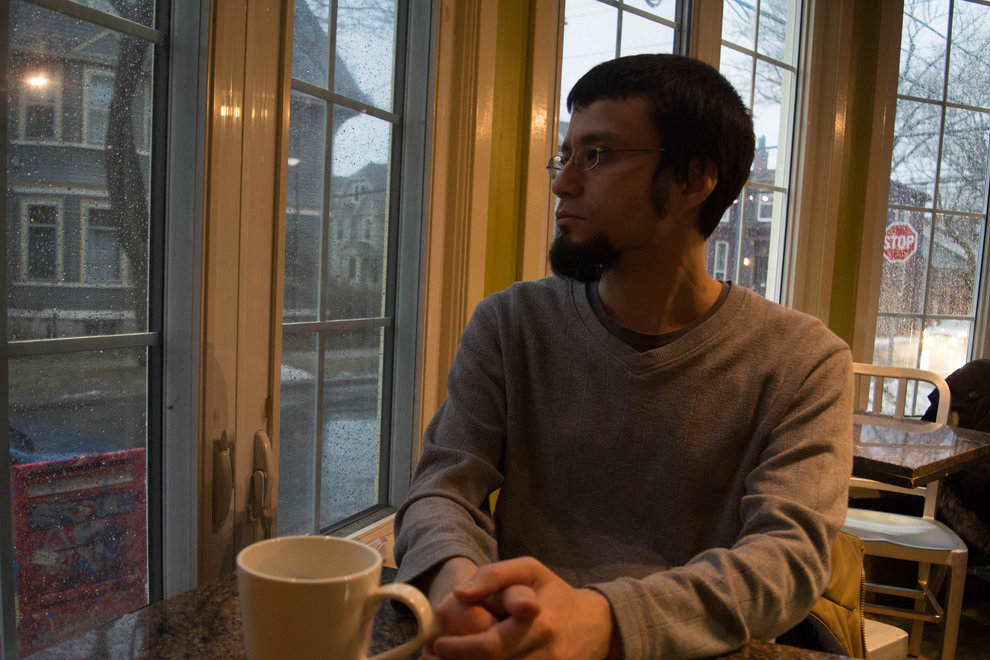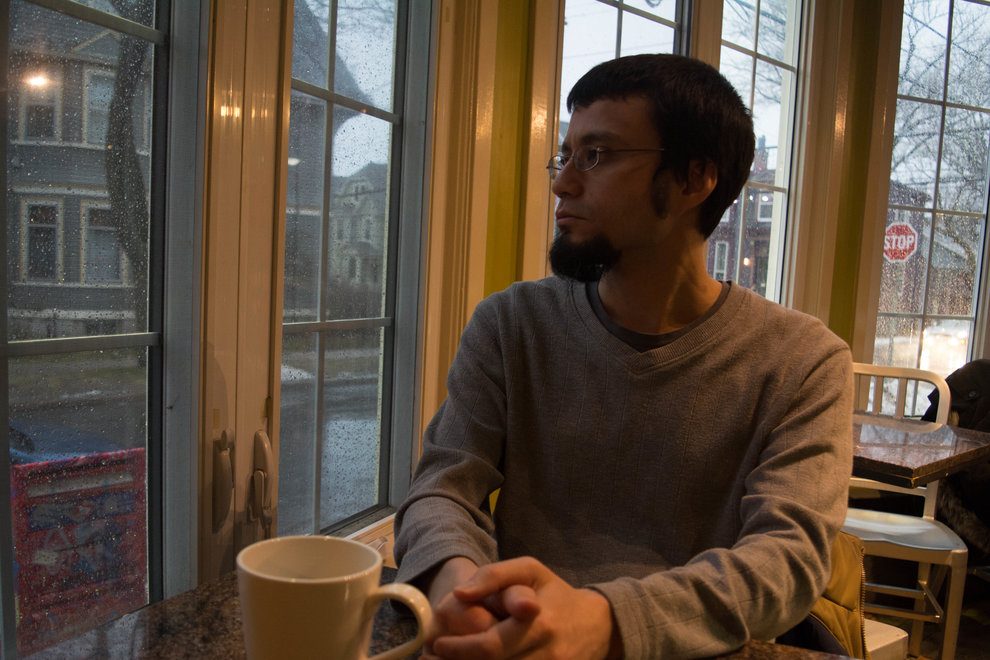Religion
Former cult member seeks others to form a support group
Matt Keoughan says his former religion is a cult and seeks others with similar experiences

caption
Matt Keoughan says he grew up in a cult and is interested in hearing the stories of others like him.
caption
Matt Keoughan says he grew up in a cult and is interested in hearing the stories of others like him.When he was 15 years old, Matt Keoughan left the cult he had been questioning for years. Now, at 36, he is trying to start a meet-up group in Halifax for people who’ve experienced the same thing.
He posted an ad on Kijiji in mid-January searching for “ex JWs, and anyone else who was part of a cult” anyone who has escaped a cult in the Halifax area. He feels they would benefit from discussions with other people who have been on the inside.
“I’ve been involved with different support groups in the past,” says Keoughan. “It’s an opportunity to vent to people who understand, who’ve been there.” Keoughan says leaving a religious organization can result in feelings of isolation and guilt. He hopes meeting with like-minded people will help him — and others — heal.
Keoughan was born into the Jehovah’s Witnesses, a religion which describes its mission as “adhering to the form of Christianity that Jesus taught and his apostles practiced.” His parents joined the Jehovah’s Witnesses as adults, despite the fact that neither of their families had previously been involved with the organization. They met at an assembly, or three day convention featuring talks and videos which teach scriptural lessons, in Halifax, and had Keoughan a year later.
“When you’re raised in a cult, you’re basically trained to see the world how they want you to see it,” he says.
Keoughan remembers the books he was made to read during his childhood, featuring images of “fireballs coming down from the sky” and warnings that the end of the world was near.
“When you’re a child, you don’t understand that it’s not real,” he says. “And when you’re living in that kind of fear, you don’t plan for the future.”
Since leaving, Keoughan has started to research the Jehovah Witnesses from an outside perspective and is not happy with what he has found. He points to several allegations of abuse within the religious group.
Keoughan’s use of the word “cult” to describe his former religion is a reflection of his feelings toward the group.
Craig Skrumedi is an instructor of cultural and creative studies at Cape Breton University. He teaches a course called “Cults and New Religious Movements” and says that the Jehovah’s Witnesses are not typically referred to as a cult or a new religious movement, due to the fact that it has been around since the 19th century. He says the religion has been “resilient” and maintained its following despite several “failed prophecies.”
Cult usually refers to religious groups that somehow deviates from what is deemed socially acceptable within a community, Skrumedi says. It is often used in popular parlance to describe a group that participates in “extreme deviant behaviour such as murder, suicide and brainwashing.”
That’s exactly why Keoughan uses the term, saying “a spade is a spade.”
Like Keoughan, Skrumedi encourages former members of religious institutions to gather together to share stories and support each other. Skrumedi says leaving a religion, like any major changes in one’s life, can be a confusing time.
“If the previous identity was central to one’s sense of self,” he says. There will most likely be a period of psychological and emotional adjustment.” Having the support of people in your community can help one make the “necessary adaptations.”
When Keoughan left the Jehovah’s Witnesses 20 years ago, his journey was made easier by the fact that his parents had slowly faded from the organization around the same time. Had they remained in the group, Keoughan says it would have been much harder to leave. He says when a member leaves the organization they become disfellowshipped, or excommunicated. Keoughan says remaining members are forbidden to talk to the disfellowed, in an act called shunning which the JW organization denies practicing except when members “make a practice of breaking the Bible’s moral code.”
“They have covered things up to keep their organization looking pristine on the outside,” he says.
Twenty years later, Keoughan proudly calls himself a secular humanist focusing on the idea that humans can be good to each other without the belief in a higher power.
“They paint a beautiful lie,” says Keoughan, of the Jehovah’s Witnesses. “You’re sold an image of a paradise earth — but don’t drink the Kool-Aid.”
Repeated calls to the Jehovah’s Witnesses press numbers were not answered.

